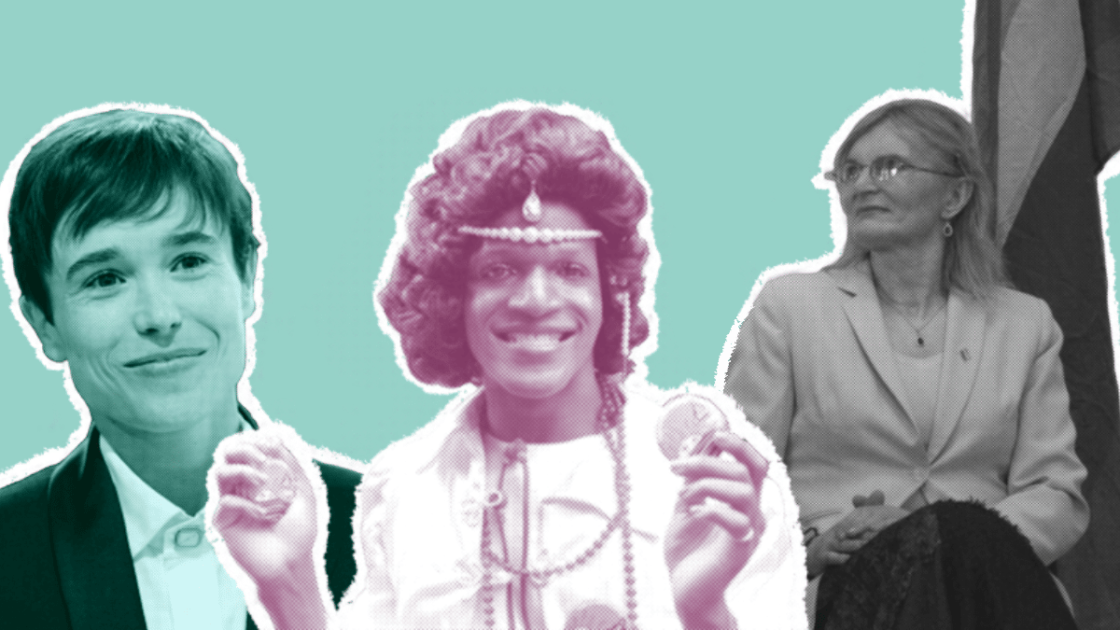Being transgender
Get information on what it means to be transgender and supports for trans young people in Ireland

Transgender people are people whose gender identity and/or gender expression differs from the sex they were assigned at birth. ‘Trans’ is an umbrella term for transgender people. If you identify and feel comfortable with the gender you were assigned at birth, then you are cisgender. Some people also identify as agender, meaning without a gender or genderless. While many people are brought up to believe that a person can only be one of two things, a man or a woman, the reality for a lot of people it is much broader.
What is gender identity?
Gender is not the same as sex. Sex is the female or male category you are assigned at birth. But this assigned category might not fit you as a person. Your gender is who you are on the inside, and does not have to relate to your body or how others see you.
Trans people also include people who identify as gender-neutral, non-binary, genderqueer or gender-fluid people, who may identify as outside of the ‘binary’ genders of man and woman. A binary is something made of only two parts. People who are non-binary or gender non-conforming, identify their gender as beyond the gender binary, somewhere within it, or may reject the male/female binary altogether.
It’s important to remember that your gender identity does not determine other aspects of your life, such as your sexual identity or sex life. Your sexual identity is about who you like, and your gender identity is who you are.
How do I know if I am trans?
Some trans people have known they are trans from a very young age, while others might realise much later in life. Nomatter what age someone is, it is important to respect someone’s gender identity and trust they know themselves best. For some people, discovering their gender identity is a process that takes time, and they might identify differently at numerous points in their life. Other people will have one gender identity for their whole lives and never question it.
How can I support transgender people?
You can’t tell someone’s gender identity just by looking at them, but your gender expression, or how you express your gender, is visible. Some trans people appear and dress themselves in ways to express their gender identity. Others have surgeries to allign their gender identity with their appearance. But it is important to remember that not all trans people will express their gender through their appearance or with surgery. No matter how someone looks, their gender identity and expression should still be respected.
It’s important if you are friends with or know a trans person to address them with the gender they refer to themselves as and refer to them with their chosen name and gender pronouns. Some gender pronouns include ‘she/her’, ‘they/them’, or ‘he/his’. Here’s an article written by one of our volunteers about using ‘they/them’ pronouns.
There can be as many gender identities as there are people in the world, because we are all unique and experience our genders differently. If someone’s gender identity doesn’t make sense to you, it is important to respect who they are no matter what. Our gender identities are personal to us, and it is okay if someone does not fit a social ‘norm’.
What’s the difference between Trans and other terms?
- Transexual is a term that is used to describe someone who has medically or surgically transitioned from one sex to another. Some people find this term offensive, due its medical history. Furthermore, after medically transitioning, many people cease to identify as transexual or transgender, and simply identify as a woman or a man. It’s best to avoid this term, unless you meet someone who uses it to describe themselves
- Cross-dressing is the practice of wearing clothes that aren’t traditionally associated with your gender. For example, someone who identifies as a man, wearing clothes that are traditionally considered to be worn by women. Cross-dressing is a form of gender expression and is not done for entertainment. If you have heard the term Transvestite to describe this, avoid using it as it is no longer used and can be offensive
- Drag Kings/Drag Queens are people who exaggerate stereotypical female and male roles, generally for the purpose of entertainment
- Intersex people are people whose sex characteristics vary from traditional female or male types
Is there support in Ireland for trans people?
If you are questioning your gender identity and need support, it can help to talk to someone. A professional counsellor or therapist (who is informed on trans issues and has worked with other trans people) may be able to help you talk through what you are going through and provide support.
If you are transgender, or have a family member who is trans, contact BeLonG To or Transgender Equality Network Ireland (TENI) for advice and support.
Remember, there are many people in the world who are transgender. Being trans is completely normal, and something to be proud of.
Need more information?
We are here to answer your questions and talk through your options. Our online chat service is for 16 to 25 year olds and is available Monday to Friday, 4pm to 8pm. Chat to us now about your situation.
- Chat now to a trained Youth Information Officer
- Or leave us a message and we will email you back






